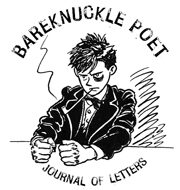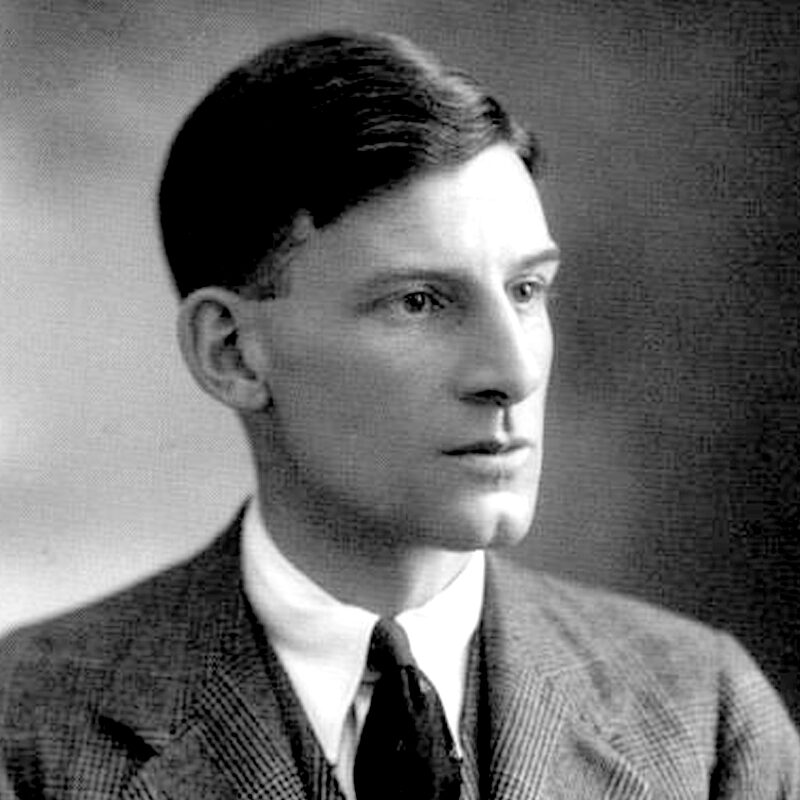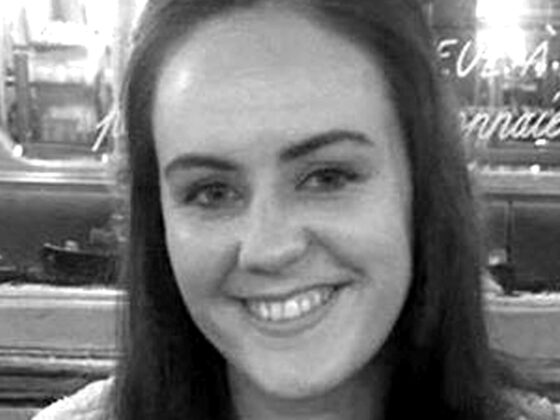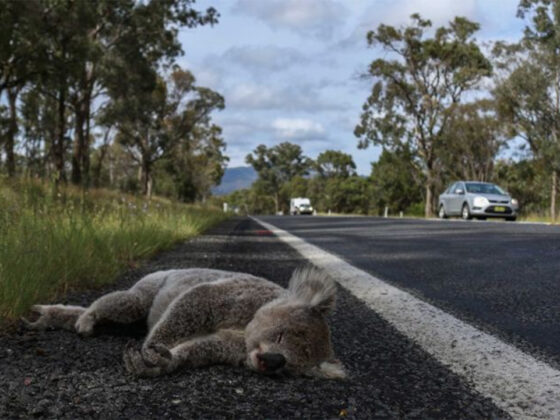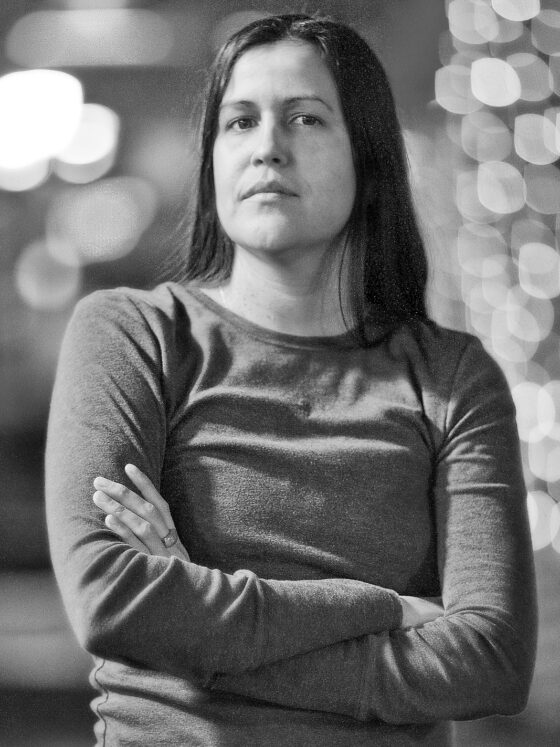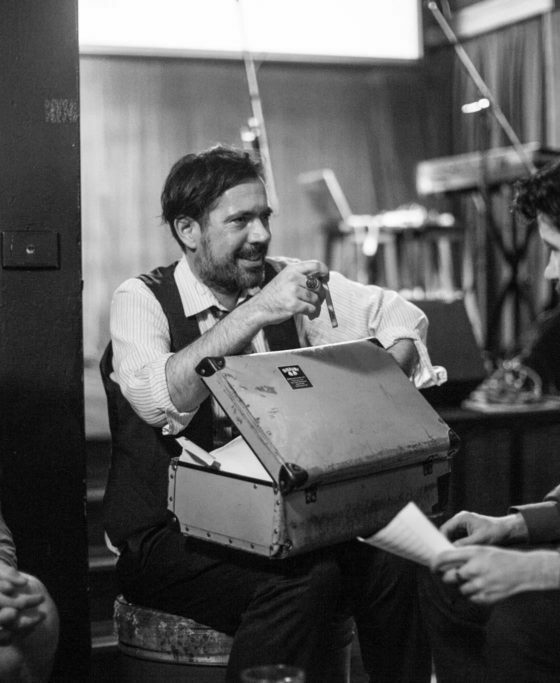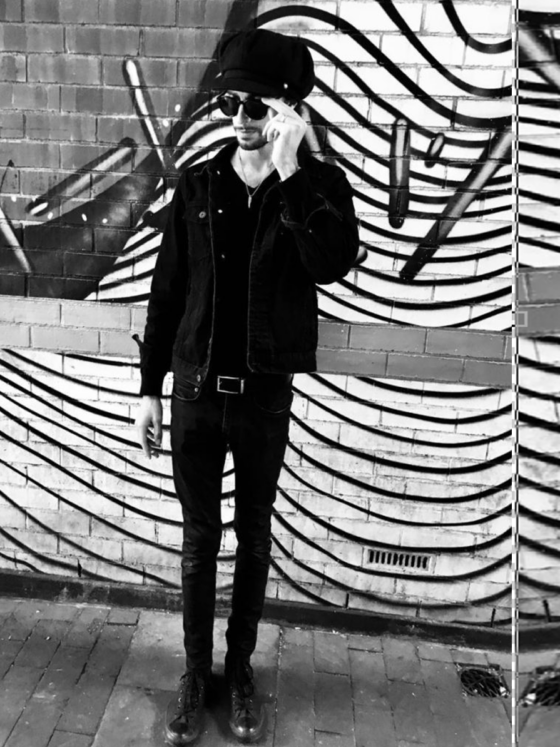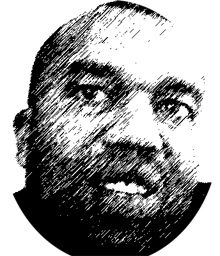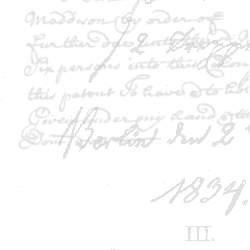An examination of the emotional, intellectual, moral, ideological and aesthetic responses to the Great War in the poetry of Siegfried Sassoon, Wilfred Owen and Isaac Rosenberg.
As the first global conflict, the Great War provoked intense and disparate responses from many artists, novelists and poets. This paper considers the work of Isaac Rosenberg, whose lower social standing hampered his poetic career and saw him enlist for financial reasons; Siegfried Sassoon, whose privileged lifestyle of cricket and poetry moved him to enlist as a proud patriot; and Wilfred Owen, who was living comfortably abroad, working as a tutor and pursuing his literary interests, before being moved to enlist by propaganda and feelings of personal guilt. To effectively compare and contrast three poems from each poet, this essay treats each text chronologically. A brief introduction to each poet provides context, looking at how their personal lives were interrupted by news of the outbreak of hostilities, followed by an analysis of a poem written in response to this news. Next, an analysis of a poem composed during training, before battle has been experienced and finally, a poem written in the thick of war. Comparing, through their poetry, their initial responses from individual perspectives, their personal expectations and their ultimate experience of the Great War, it can be seen that they all achieved the same realisation, that everything had changed, for everyone, forever.
Isaac Rosenberg, (b. Bristol 1880), was in Africa when the news of war reached him. Considering himself a serious poet, (several poems had attracted some attention from Ezra Pound ), he responded with the poem On Receiving News of the War (1914). Using a vivid image of the sudden indifferent descent of a harsh winter as a metaphor for the cruel violence that he (very presciently) foresaw gripping the world, he mused that perhaps War is an ancient spirit that resides in the hearts of humanity, beyond comprehension, waiting, like winter, to subdue the spirit:
Snow is a strange white word. No ice or frost Has asked of bud or bird For Winter’s cost. Yet ice and frost and snow From earth to sky This Summer land doth know. No man knows why. In all men’s hearts it is. Some spirit old Hath turned with malign kiss Our lives to mould. …
This first poem betrays the authors inner turmoil at the news of the war, while revealing Rosenberg as an emotionally distant yet mystical man, perhaps at heart a fatalist. Rosenberg may have believed that the war was like a duty of nature, an ancient part of life. He saw war as being inevitable, like the seasons. The below concluding stanzas of the poem seem to give praise to this force, it is greater than man, inevitable like rust or fire. The poet felt the tremors of some far off explosion, with the shockwaves he registered the scent of danger:
Red fangs have torn His face. God’s blood is shed. He mourns from His lone place His children dead. O! ancient crimson curse! Corrode, consume. Give back this universe
Its pristine bloom.
Despite the palpable sense of horror in this poem, it was Rosenberg’s inherent sense of duty and the cultural pressure to serve the greater good that saw him return to England and ultimately enlist as a soldier. This poem shows much of the modernist promise that Pound no doubt had noticed in his pre-war collection. In the later Trench Poems the voice of a “modern poet is clearly heard…” (Rusche, Harry 1)
The poem ‘Soldier: Twentieth Century’, written after Rosenberg had enlisted and was undergoing training, examined “the drive for recruitment and the pressures placed on ordinary men to enlist” (Walter XXXVIII). In the first stanza it appears the poet was swept up in the prevailing pro-war sentiment. But he protests, he is smart, he knows how it works. Men like him are the army; this “new Titan” that has arisen inspires his mythic imagination, throwing him back to the times of great emperors with fantastic armies:
I love you, great new Titan! Am I not you? Napoleon and Caesar
Out of you grew.
Rosenberg hadn’t seen battle yet, although he must have heard stories, and the poets mind grappled with the imagined but unknown “Out of unthinkable torture/Eyes kissed by death”. He, however, could not let himself be afraid, needing battle to make his heart hard, “Cruel men are made immortal,/Out of your pain born”. To survive, he was willing to become cruel like those emperors who “have stolen the suns power”, standing on their soldiers shoulders.
After seeing battle Rosenberg produces this, in a poem titled ‘God’:
In his malodorous brain what slugs and mire Lanthorned in his oblique eyes, guttering burned!
His body lodged a rat where men nursed souls.
The image of a rat squirming about in the rotting brains of a smashed open head is a stark contrast to both the sarcastic optimism of ‘Soldier: Twentieth Century’ and the vast winter landscape in ‘On Receiving News of the War’. Due to his physical isolation in Africa he had only registered rumbles in the distance, his first personal experience of war produced much more savage imagery:
On fragments of an old shrunk power, On shy and maimed, on women wrung awry,
He lay, a bullying hulk, to crush them more.
This putrid claustrophobia reveals a stifling landscape where “… in the morning some pale wonder ceases./Things are not strange and strange things are forgetful.”(God, Rosenberg)
Siegfried Sassoon (b. Kent 1886) was a privileged member of the upper class. His early dilettantish self-published collections of poems showed little promise and attained no critical acclaim. Receiving a stipend from the family estate, he dropped out of university and spent several years playing cricket. A patriotic man, he enlisted in the army after hearing rumors of war, and during training he remained positive and cheerful. A poem written in this period ‘The Kiss’ sings praises to his weaponry, like a knight, he trusts only his sword:
To these I turn, in these I trust; Brother Lead and Sister Steel. To his blind power I make appeal;
I guard her beauty clean from rust.
In the second stanza the poet imagines battle, “He spins and burns and loves the air/And splits a skull to win my praise.” The image of the skull splitting is an apt metaphor for the discord that was to come, yet at this point he was still jovial, proud, :”But up the nobly marching days…” (The Kiss, Sassoon).
Contrast this with Rosenberg’s poem ‘Soldier 20th Century’, also written during the period of training. Rosenberg’s thinking was political, sarcastic, “I love you, great new Titan!” (Soldier: Twentieth Century, Rosenberg). Rosenberg’s musings on actual battle were full of dread, “Out of unthinkable torture/Eyes kissed by death” (Soldier: Twentieth Century, Rosenberg), whereas Sassoon praised his weapons, he thought of Sister Steel as beautiful and he tended to her: “Sister Steel…/I guard her beauty clean from rust.” (The Kiss, Sassoon)
Combat was delayed for Sassoon as he badly broke his arm in a riding accident. After convalescing, he was sent to battle where the absolute horror he witnessed changed him and his writing irrevocably. While serving in the 1st Battalion in France he met and became close friends with Robert Graves, whose theories of ‘gritty realism’ profoundly influenced Sassoon’s aesthetic. A poem from this period ‘The Redeemer’ indicated a dramatic shift from the heroic to the horrified, glorious praises to weaponry gave way to black ditches, driving rain, screaming bullets and exploding shells:
Darkness: the rain sluiced down; the mire was deep; It was past twelve on a mid-winter night, When peaceful folk in beds lay snug asleep; There, with much work to do before the light, We lugged our clay-sucked boots as best we might Along the trench; sometimes a bullet sang, And droning shells burst with a hollow bang; We were soaked, chilled and wretched, every one;
Darkness; the distant wink of a huge gun.
While there was still a hint of the heroic in his words, the second stanza showed a sense of hopelessness creeping in, “No thorny crown, only a woollen cap/He wore—an English soldier, white and strong…” (The Redeemer, Sassoon) His longing for home is evident, and although he still believed the war to be a good Christian cause:
Now he has learned that nights are very long, And dawn a watching of the windowed sky. But to the end, unjudging, he’ll endure Horror and pain, not uncontent to die
That Lancaster on Lune may stand secure.
Sassoon fought heroically and was awarded a Military Cross for bravery, yet despite his Christian idealism his initial patriotic fervor dimmed fast, doused with pain and blood. The gritty, realist portrayals of his experiences evident in the poem above, gave way to a no-punches-pulled style which read like a report. Consider the opening lines of ‘Counter Attack’:
We’d gained our first objective hours before While dawn broke like a face with blinking eyes, Pallid, unshaved and thirsty, blind with smoke. Things seemed all right at first. We held their line, With bombers posted, Lewis guns well placed,
And clink of shovels deepening the shallow trench.
Sassoon then turned his gaze from the haggard faces of his comrades and surveyed the landscape:
The place was rotten with dead; green clumsy legs High-booted, sprawled and groveled along the saps; And trunks, face downward, in the sucking mud, Wallowed like trodden sand-bags loosely filled; And naked sodden buttocks, mats of hair,
Bulged, clotted heads slept in the plastering slime.
Wilfred Owen (b. Shropshire 1893) was an intellectual of modest means who had embarked on a career as a poet at a young age. His early poetry was heavily influenced by the romantic poets Keats and Shelly. Working as a tutor in France when war broke out, he soon returned to England after feeling stirred by propaganda in the news. After enlisting, he was proud to be a soldier, as the poem ‘Arms and the Boy’ shows:
Let the boy try along this bayonet-blade How cold steel is, and keen with hunger of blood; Blue with all malice, like a madman’s flash;
And thinly drawn with famishing for flesh.
The imagery is familiar, “Let the boy try along this bayonet-blade”; the turn of phrase is not dissimilar to Sassoon’s “To these I turn, in these I trust;/Brother Lead and Sister Steel.” (The Kiss, Sassoon) Both of these poems were written before Sassoon and Owen knew each other, however this camaraderie of spirit became even more evident in each other’s work after they eventually met during the course of the war. The influence of Sassoon’s ‘gritty realism’, in turn, affected the work of Owen quite profoundly.
How different was Rosenberg’s response, “In all men’s hearts it is./Some spirit old/Hath turned with malign kiss/Our lives to mould.” (On Receiving News of the War, Rosenberg). Rosenberg signed up because he needed money, yet he foresaw that his fate was to be altered, his life molded anew. During training he anticipated great epic battles but also “… unthinkable torture / Eyes kissed by death” (Soldier: Twentieth Century, Rosenberg), whereas Owen and Sassoon had joined for patriotic reasons and were both keen for battle. However, Owen had seen first hand injured soldiers in an infirmary before he went into battle. After this experience he composed ‘The Send Off’ which, in contrast to the earlier “cold steel hungry for blood” reveals a somewhat ominous image, initial smiles turning to a grimace:
Down the close darkening lanes they sang their way To the siding-shed, And lined the train with faces grimly gay. Their breasts were stuck all white with wreath and spray As men’s are, dead. Dull porters watched them, and a casual tramp Stood staring hard,
Sorry to miss them from the upland camp.
The truth, for Owen, was sinking in, “…secretly, like wrongs hushed-up, they went. / They were not ours / We never heard to which front these were sent.” (The Send Off, Owen) Clearly any feelings of chivalry were dying like the flowers handed to the soldiers as they marched off to conflict:
Nor there if they yet mock what women meant Who gave them flowers. Shall they return to beatings of great bells In wild trainloads? A few, a few, too few for drums and yells, May creep back, silent, to still village wells
Up half-known roads.
And then, after meeting Sassoon while they were both recovering from shell shock and then heading back into battle, he produced what was one of the most popular poems of World War 1, ‘Anthem for Doomed Youth’. Owen was now pulling no punches:
What passing-bells for these who die as cattle? Only the monstrous anger of the guns. Only the stuttering rifles’ rapid rattle Can patter out their hasty orisons. No mockeries for them; no prayers nor bells, Nor any voice of mourning save the choirs,— The shrill, demented choirs of wailing shells;
And bugles calling for them from sad shires.
From this point on, perspective altered by atrocities previously unimagined, he knew the truth, that soldiers were just cattle. There wass none of the previously imagined chivalry, nor ceremony, just “shrill, demented choirs of wailing shells; / And bugles calling for them from sad shires.” Compare this with Rosenberg and his “…malodorous brain what slugs and mire… / On fragments of an old shrunk power, / On shy and maimed, on women wrung awry” (God, Rosenberg) and Sassoon’s “The place was rotten with dead; green clumsy legs… / … trunks, face downward, in the sucking mud, / Wallowed like trodden sand-bags loosely filled;” (Counter Attack, Sassoon).
Here the contrast between these great poets and their responses to the war, despite differing social, financial and ideological outlooks, differed little. The Great War changed all three fundamentally, bringing their intellectual and aesthetic approaches into a cacophonous cry of despair; in unison these poets echoed the great disturbance in the hearts and minds of humanity, as a whole.
—
© Brentley Frazer
Works Cited
Poetry (Appendix A)
All poetry sourced from The Penguin Book of First World War Poetry. London: Penguin Books 2004.Walter, George. Ed.
Isaac Rosenberg
On Receiving News of the War
Soldier: Twentieth Century
God
Siegfried Sassoon
The Kiss
The Redeemer
Counter- attack
Wilfred Owen
Arms and the Boy
The Send Off
Anthem for Doomed Youth
Criticism
Walter, George. Ed. The Penguin Book of First World War Poetry. London: Penguin Books 2004 ‘Introduction’ Page xxxviii
Rusche, Harry.Ed. Lost Poets of the Great War. English Department, Emory University, Atlanta, GA
—————————
Works Consulted
Rusche, Harry. Lost Poets of the Great War. English Department, Emory University, Atlanta, GA [Date unknown]Parsons, Ian, Ed.. The Collected Works of Isaac Rosenberg. London: Chatto and Windus, 1979
Cohen, Joseph. Journey to the Trenches: The Life of Isaac Rosenberg, 1890-1918. New York: Basic Books, 1975
Moorcroft Wilson, Jean. Siegfried Sassoon: The Making of a War Poet (1998) Routledge; 1 edition (2005)
Radner, Hilary. Siegfried Sassoon: The Journey From The Trenches, A Biography (1918-1967) Routledge; 1 edition (2004)
Stallworthy, Jon. Wilfred Owen: A Biography Oxford University Press (1995)
McPhail, Helen. WILFRED OWEN: On the Trail of the Poets of the Great War (Battleground Europe. on the Trail of the Poets of the Great War) Pen and Sword (1999)
Roberts, David. Ed. Out in the Dark ‘Poetry of the First World War’ Saxon Books (1995)
The War Poetry Archive – www.warpoetry.co.uk
—
APPENDIX A (Source Poems)
Isaac Rosenberg On Receiving News of the War Snow is a strange white word. No ice or frost Has asked of bud or bird For Winter’s cost. Yet ice and frost and snow From earth to sky This Summer land doth know. No man knows why. In all men’s hearts it is. Some spirit old Hath turned with malign kiss Our lives to mould. Red fangs have torn His face. God’s blood is shed. He mourns from His lone place His children dead. O! ancient crimson curse! Corrode, consume. Give back this universe Its pristine bloom. —– Isaac Rosenberg Soldier: Twentieth Century I love you, great new Titan! Am I not you? Napoleon and Caesar Out of you grew. Out of unthinkable torture, Eyes kissed by death, Won back to the world again, Lost and one in a breath, Cruel men are made immortal,
out of your pain born.
——- Isaac Rosenberg God In his malodorous brain what slugs and mire, Lanthorned in his oblique eyes, guttering burned! His body lodged a rat where men nursed souls. The world flashed grape-green eyes of a foiled cat To him. On fragments of an old shrunk power, On shy and maimed, on women wrung awry, He lay, a bullying hulk, to crush them more. But when one, fearless, turned and clawed like bronze, Cringing was easy to blunt these stern paws, And he would weigh the heavier on those after. Who rests in God’s mean flattery now? Your wealth Is but his cunning to make death more hard. Your iron sinews take more pain in breaking. And he has made the market for your beauty Too poor to buy, although you die to sell. Only that he has never heard of sleep; And when the cats come out the rats are sly. Here we are safe till he slinks in at dawn. But he has gnawed a fibre from strange roots, And in the morning some pale wonder ceases. Things are not strange and strange things are forgetful. Ah! if the day were arid, somehow lost Out of us, but it is as hair of us, And only in the hush no wind stirs it. And in the light vague trouble lifts and breathes, And restlessness still shadows the lost ways. The fingers shut on voices that pass through, Where blind farewells are taken easily . . . Ah! this miasma of a rotting God! Siegfried Sassoon The Kiss To these I turn, in these I tust; Brother Lead and Sister Steel. To his blind power I make appeal;
I guard her beauty clean from rust.
He spins and burns and loves the air, And splits a skull to win my praise; But up the nobly marching days
She glitters naked, cold and fair.
Sweet Sister, grant your soldier this; That in good fury he may feel The body where he sets his heel
Quail from your downward darting kiss
———-
Siegfried Sassoon The Redeemer Darkness: the rain sluiced down; the mire was deep; It was past twelve on a mid-winter night, When peaceful folk in beds lay snug asleep; There, with much work to do before the light, We lugged our clay-sucked boots as best we might Along the trench; sometimes a bullet sang, And droning shells burst with a hollow bang; We were soaked, chilled and wretched, every one;
Darkness; the distant wink of a huge gun.
I turned in the black ditch, loathing the storm; A rocket fizzed and burned with blanching flare, And lit the face of what had been a form Floundering in mirk. He stood before me there; I say that He was Christ; stiff in the glare, And leaning forward from His burdening task, Both arms supporting it; His eyes on mine Stared from the woeful head that seemed a mask
Of mortal pain in Hell’s unholy shine.
No thorny crown, only a woollen cap He wore—an English soldier, white and strong, Who loved his time like any simple chap, Good days of work and sport and homely song; Now he has learned that nights are very long, And dawn a watching of the windowed sky. But to the end, unjudging, he’ll endure Horror and pain, not uncontent to die
That Lancaster on Lune may stand secure.
He faced me, reeling in his weariness, Shouldering his load of planks, so hard to bear. I say that He was Christ, who wrought to bless All groping things with freedom bright as air, And with His mercy washed and made them fair. Then the flame sank, and all grew black as pitch, While we began to struggle along the ditch; And someone flung his burden in the muck,
Mumbling: ‘O Christ Almighty, now I’m stuck!’
————————
Siegfried Sassoon Counter-Attack We’d gained our first objective hours before While dawn broke like a face with blinking eyes, Pallid, unshaved and thirsty, blind with smoke. Things seemed all right at first. We held their line, With bombers posted, Lewis guns well placed, And clink of shovels deepening the shallow trench. The place was rotten with dead; green clumsy legs High-booted, sprawled and grovelled along the saps; And trunks, face downward, in the sucking mud, Wallowed like trodden sand-bags loosely filled; And naked sodden buttocks, mats of hair, Bulged, clotted heads slept in the plastering slime. And then the rain began,–the jolly old rain! A yawning soldier knelt against the bank, Staring across the morning blear with fog; He wondered when the Allemands would get busy; And then, of course, they started with five-nines Traversing, sure as fate, and never a dud. Mute in the clamour of shells he watched them burst Spouting dark earth and wire with gusts from hell, While posturing giants dissolved in drifts of smoke. He crouched and flinched, dizzy with galloping fear, Sick for escape,–loathing the strangled horror And butchered, frantic gestures of the dead. An officer came blundering down the trench: “Stand-to and man the fire-step!” On he went … Gasping and bawling, “Fire-step … counter-attack!” Then the haze lifted. Bombing on the right Down the old sap: machine-guns on the left; And stumbling figures looming out in front. “O Christ, they’re coming at us!” Bullets spat, And he remembered his rifle … rapid fire … And started blazing wildly … then a bang Crumpled and spun him sideways, knocked him out To grunt and wriggle: none heeded him; he choked And fought the flapping veils of smothering gloom, Lost in a blurred confusion of yells and groans … Down, and down, and down, he sank and drowned, Bleeding to death. The counter-attack had failed. ——- Wilfred Owen Arms and the Boy Let the boy try along this bayonet-blade How cold steel is, and keen with hunger of blood; Blue with all malice, like a madman’s flash; And thinly drawn with famishing for flesh. Lend him to stroke these blind, blunt bullet-leads Which long to nuzzle in the hearts of lads, Or give him cartridges of fine zinc teeth, Sharp with the sharpness of grief and death. For his teeth seem for laughing round an apple. There lurk no claws behind his fingers supple; And God will grow no talons at his heels, Nor antlers through the thickness of his curls. ——— Wilfred Owen The Send-Off Down the close darkening lanes they sang their way To the siding-shed, And lined the train with faces grimly gay. Their breasts were stuck all white with wreath and spray As men’s are, dead. Dull porters watched them, and a casual tramp Stood staring hard, Sorry to miss them from the upland camp. Then, unmoved, signals nodded, and a lamp Winked to the guard. So secretly, like wrongs hushed-up, they went. They were not ours: We never heard to which front these were sent. Nor there if they yet mock what women meant Who gave them flowers. Shall they return to beatings of great bells In wild trainloads? A few, a few, too few for drums and yells, May creep back, silent, to still village wells Up half-known roads. ———-
Wilfred Owen
Anthem For Doomed Youth What passing-bells for these who die as cattle? Only the monstrous anger of the guns. Only the stuttering rifles’ rapid rattle Can patter out their hasty orisons. No mockeries for them; no prayers nor bells, Nor any voice of mourning save the choirs,— The shrill, demented choirs of wailing shells;
And bugles calling for them from sad shires.
What candles may be held to speed them all? Not in the hands of boys, but in their eyes Shall shine the holy glimmers of goodbyes. The pallor of girls’ brows shall be their pall; Their flowers the tenderness of patient minds,
And each slow dusk a drawing-down of blinds
—
